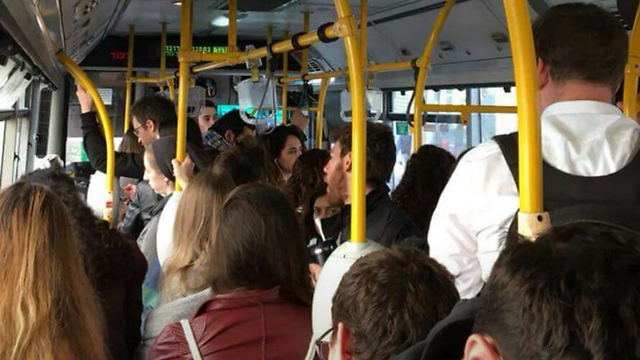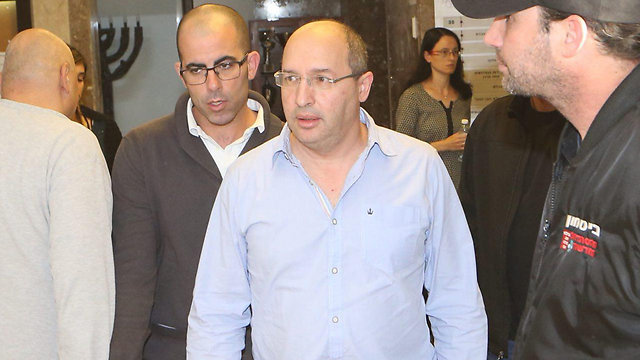
General strike over Teva layoffs won't include public transport
Chairman of the Histadrut Labor Federation Avi Nissenkorn says exception made due to inconvenience public transport closure would cause to IDF soldiers returning to bases after the weekend; special education institutions also to continue operations as usual; some 12,000 passengers to be affected amid airport strikes.
In addition, Nissenkorn said that special education institutions would operate as usual.
The strike planned for Ben Gurion Airport, scheduled to begin at 8am and conclude at 12pm, will go ahead and is expected to affect some 12,000 travellers on 57 departure flights and 24 arrivals.
“The exclusion of Israel Railways and public transport is due to consideration for the soldiers who need to get to their bases,” Nissenkorn said in his explanation.
Halting public transport on the day of the strike would have a particularly heavy impact on hundreds of thousands of IDF soldiers, who return to their bases on Sunday morning and are often required to travel hundreds of miles to arrive on time.
“The strike will include the government offices, the Israel Airports Authority, sea ports, banks, insurance companies, communications companies, the judicial system and the State Prosecutor's Office, and many other local institutions,” Nissenkorn said.
“Hospitals will work as they do on Shabbat. Moreover, operations will cease in all Teva sites in Israel.”
The half-day strike comes as a preliminary step by the Histadrut union on the heels of Teva Pharmaceuticals' decision to cut its workforce in half in a bid to alleviate the company saddled with financial misfortunes, leaving some 3,300 people unemployed.
In his original statement on Thursday, Nissenkorn included public transport in his list of services that would be closed in solidarity with the Teva workers.
"On Sunday, we will first shut down all of Teva's factories," Nissenkorn said at a special press conference in Tel Aviv. "The entire economy, banks, municipalities, public transportation, and health clinics—all will strike till noon in solidarity."
On Thursday, Teva announce its much-anticipated labor cuts, slashing its international workforce incrementally by 25% until 2019.
The new restructuring plan, headed by the company’s new CEO Kåre Schultz, is expected to but an end to approximately 14,000 out of a total of 56,000 jobs over the next two years.
In Israel, around 1,200 people will lost their jobs in 2018 alone, among them 560 senior employees, 320 Teva workers in Jerusalem, 185 research and development workers and the rest in various Teva sites.
In addition, by the end of 2019, the company’s manufacturing factories will be shut down, resulting in the termination of 500 work contracts.



















